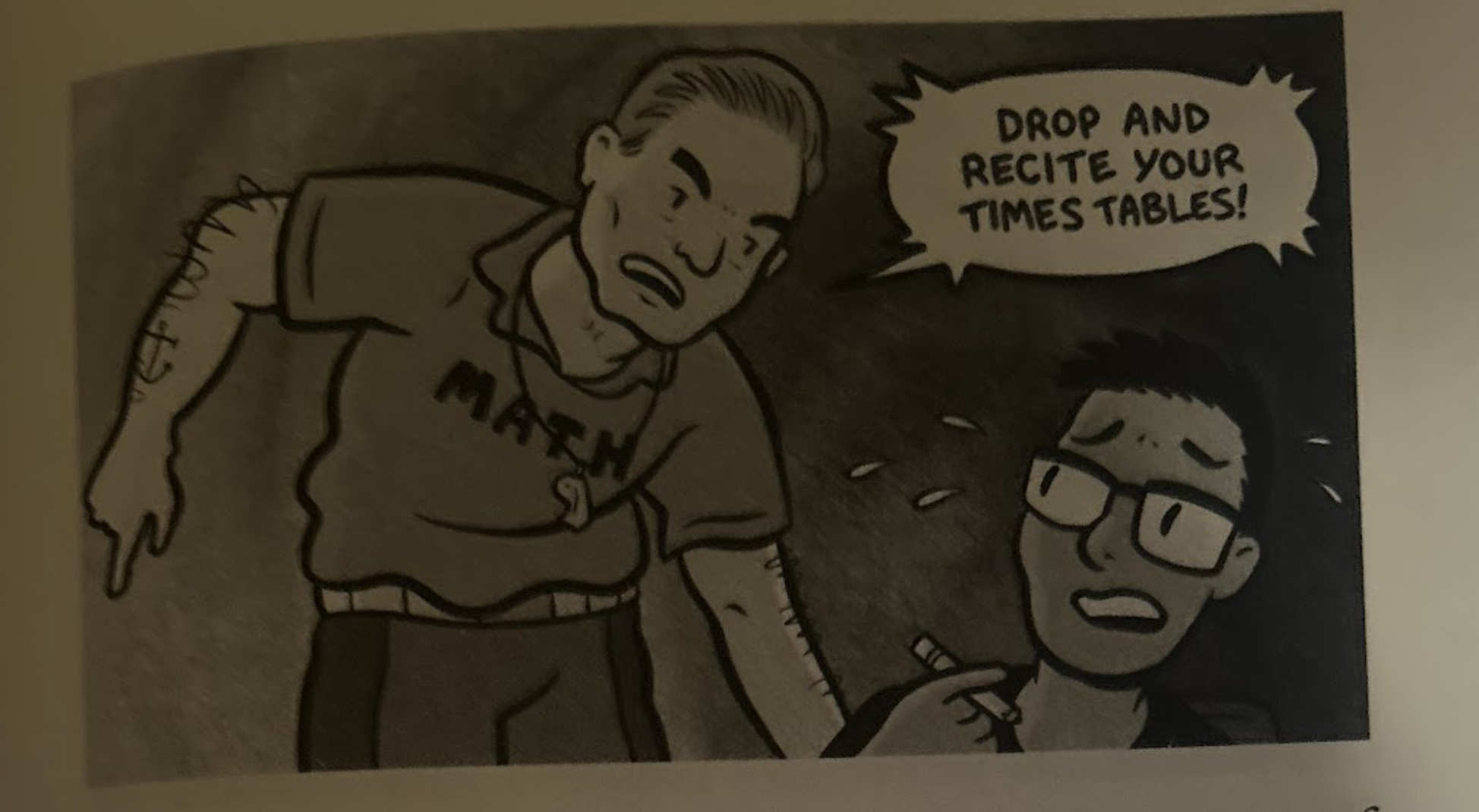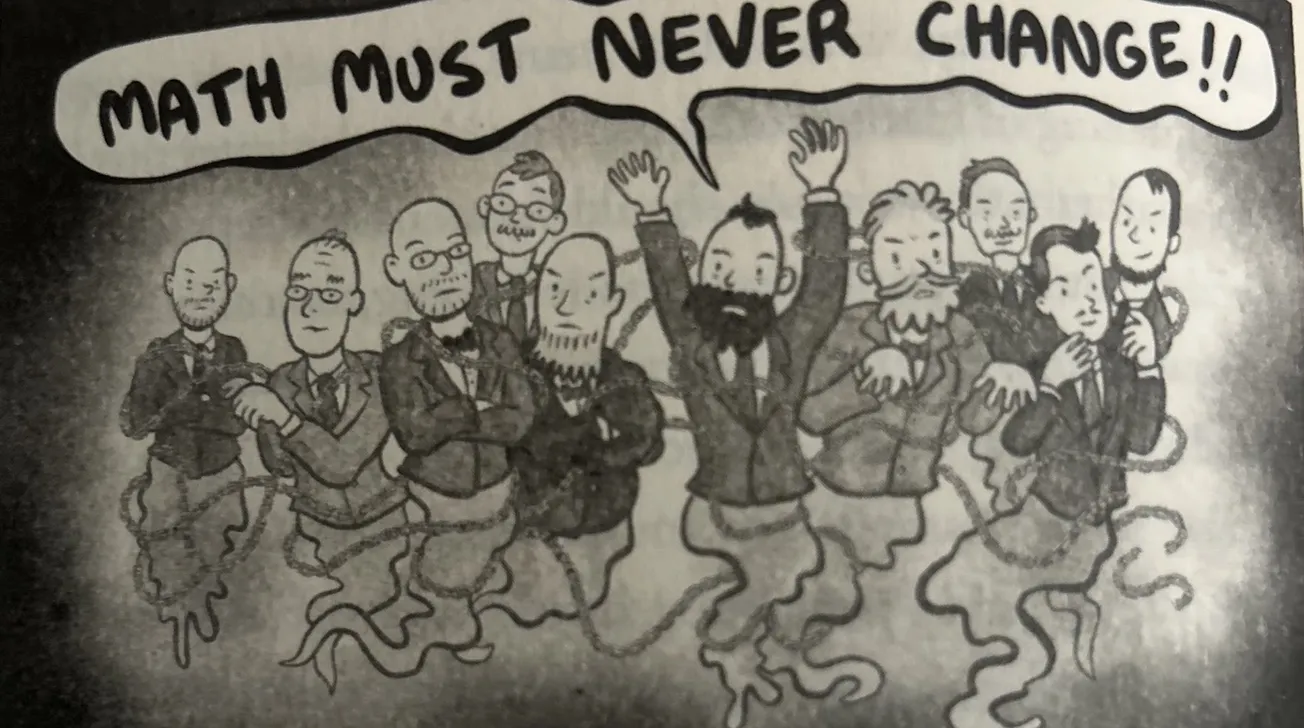Table of Contents
Jo Boaler’s latest book, Math-ish, is the newest chapter in her journey to infuse social justice and “equity” goals into mathematics education, as she has accomplished with the approval of her California Mathematics Framework in 2023. In Math-ish, she maintains her defiant tone against critics of her questionable ideas, portraying traditional rigorous mathematics instruction as harmful to women and minorities, as well as being too “narrow” to allow for mathematical diversity.
Math-ish is a fundamentally unserious work which attempts to redress the author’s perceived social wrongs through pedagogy. She emphasizes concepts such as “valuing mathematical diversity” and “relational equity,” and discusses “making sense of data and data representation” (which she frames as being important to counteract misinformation) as an “important equity imperative.” This view follows from her previous proposals to remove algebra from middle school math curricula and “de-track” gifted students from advanced math classes, serving to deny advanced math education to talented students.
As is usually the case with such “equitable” policies, those harmed by Boaler-esque reforms are talented yet disadvantaged students who depend on rigorous and challenging education being offered in public schools.
Boaler also uses Math-ish to continue her self-victimization, deriding her critics as anti-intellectual and harassers. Of course, she conveniently forgets her own harassment of Berkeley computer science Professor Jelani Nelson after he objected to her nonsensical policies.
Boaler’s focus on improving “equitable outcomes” for the majority of students leaves mathematically talented students–who will be working in fields where a solid foundation of mathematics is most necessary–languishing. While working to improve access and quality of education across the board is an admirable goal, Boaler’s approach places the dream of equality of outcome over a practical and effective education system.
While Asian nations unapologetically use rigorous math education to develop talented STEM students into contributors to their countries, Boaler’s approach places a ceiling on the potential of top students. This is seen in her proposals to push the muddy concept of “ish” (which she frames as valuing number sense) and the notion of “mathematical diversity” to displace accuracy and rigor in the classroom.
Boaler’s anti-excellence approach further stifles the already troublesome lag that the United States has in producing competent STEM Professionals, with the pandemic already causing a major slip in math testing scores across the country. American potential should not be self-hobbled by progressive concerns, as has already been seen in areas such as the mining industry. Throughout her book, proposals from replacing calculus with data science in high school, to lowering standards by removing standardized metrics, will simply serve to water down our educational system. Her “ish” approach doesn’t work when developing a flight trajectory for a missile, or drilling into a mountainside to extract lithium.
Prominent throughout Math-ish are cartoons in a style one would expect to find in a children’s book. These sketches, which take up a significant portion of the book’s length, cartoonishly display “traditional mathematics” as an archaic evil which torments otherwise young and enthusiastic students who would be eager to learn about the joys of algebra and multiplying fractions.
Among the more ridiculous cartoons include an overweight coach with t-shirt reading “math” barking at a student to “drop and recite his times tables,” and a woman with a hat reading “over-testing” jumping in anger after splitting a comically large pencil as a multi-racial group of students collaborates on a problem.

My personal favorite is a group of ten ghosts, noted by Boaler for their white maleness, screaming out that “MATH MUST NEVER CHANGE!!” While the cartoons are meant to mesh with the book’s more accessible appeal, their childishness and ridiculousness comment more on the seriousness of the book than the state of our current system.
Throughout her book, Boaler characterizes opposition to her work as regressive thinking from those who have been successful in the “narrow” system of mathematics, all while feigning an openness to discuss the merits of her ideas. She smears critics as afraid of change and defenders of oppression, ignoring evidence that testing and offering avenues for disadvantaged students–whether that be through standardized testing or advanced math tracks–have been shown to improve meritocracy.
Given all of her rhetoric around appreciating diversity and equity, Boaler - ironically - also advises fellow educators to dismiss criticism or oversight of their plans through the lens of educational elitism. She dismisses parents as detractors with “little information” opposed to “new and diverse ideas,” and who “believe they know better what should happen in the classroom because they went to schools.” In other words, Boaler defaults to the tired mantra of blindly “trusting the experts,” ignoring the questionable holes in her own work that have warranted academic investigations and scrutiny, completely disregarding parental authority in the process.
One particularly embarrassing error, which calls into serious question the rigor of Math-ish, is an error on page 165 where Boaler herself forgot how to multiply fractions (a process she often complains about teaching throughout the book). While this error–forgetting denominators–would be forgivable on a 4th-grade quiz and is rather trivial, the fact that it was allowed to slip through the cracks raises serious doubts about Boaler’s own mathematical competence.
This can be expected with Boaler, who has been termed as “Professor Karen” for her attempts to intimidate and shut down critics. After exposing the exorbitant rates she charged disadvantaged school districts for her bogus consulting, Professor Nelson was threatened with legal action for criticizing Boaler’s mathematics framework, which led him to claim that “Black people disagreeing with you on Twitter is not a crime.”
While Boaler seems to love diversity in methods of dividing fractions or long multiplication, it seems that her acceptance of criticism is far more “narrow.”
Math-ish is simply the latest chapter in Boaler’s dubious quest to promote her questionable agenda. On my read through it, the comical illustrations (which seemed to bordered on parody) and her ubiquitous tangents about how much she values cultural diversity were far more entertaining than educational, as were the oftentimes absurd and convoluted mathematical methods she introduced. While Math-ish gives the reader a thorough examination of the ideology of unelected educator-bureaucrats, it is far from a blueprint for making real improvements to mathematics education.
If you want to support the Review's reporting, you can subscribe to our free mailing list or make a donation. If you have any tips, email eic@stanfordreview.org.





